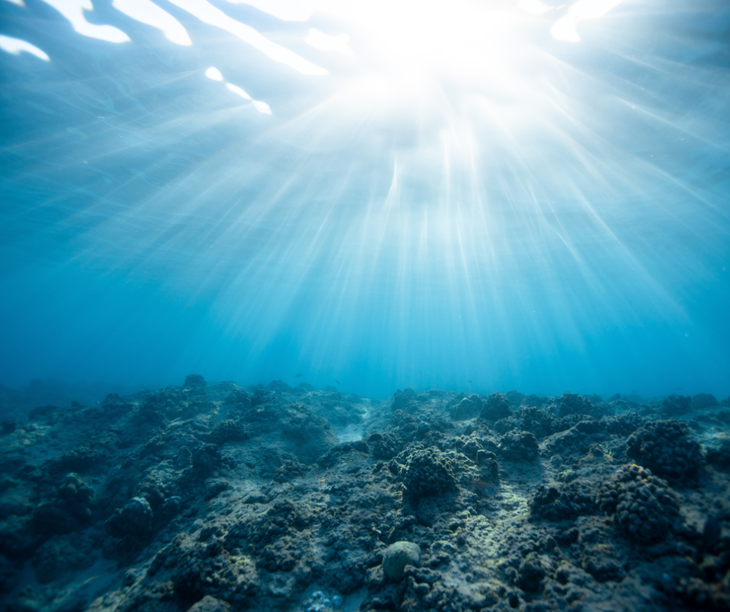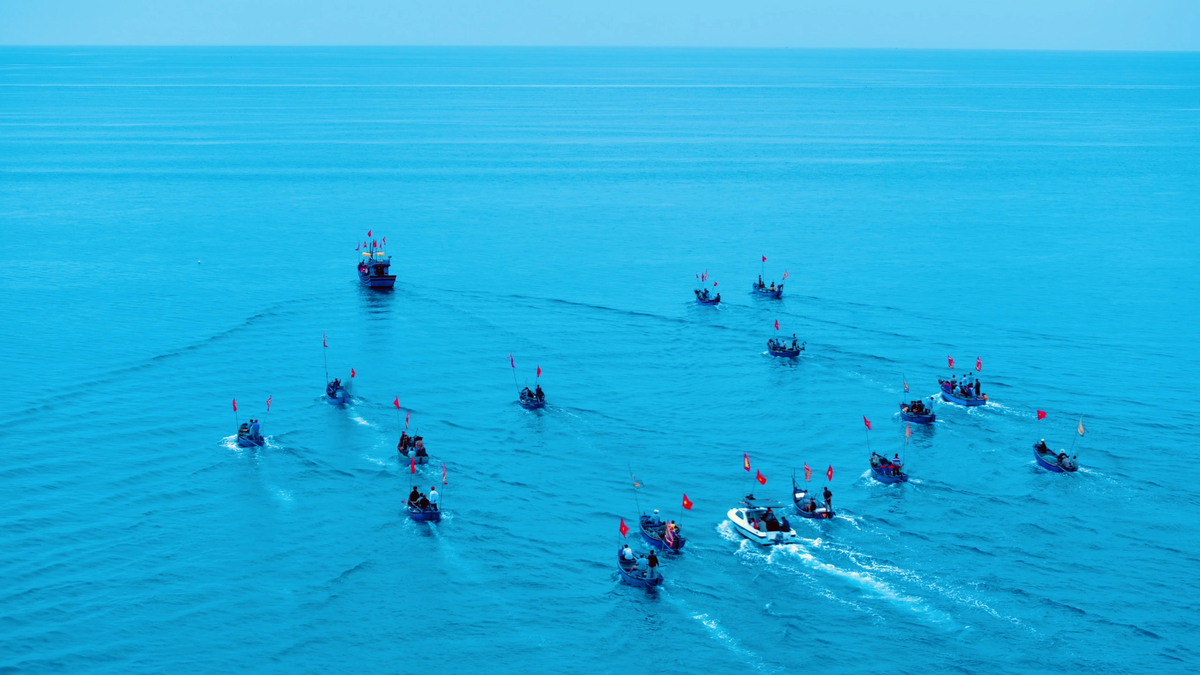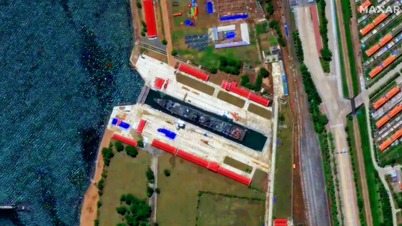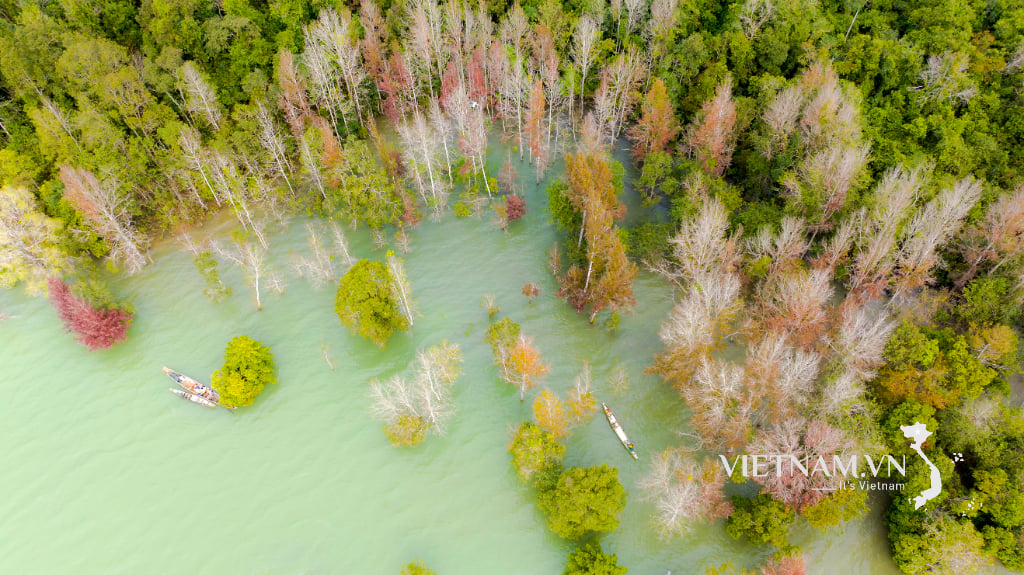
Ocean acidification is dubbed the "evil twin" of climate change - Photo: AI
According to The Guardian, an international team of scientists has just issued a warning: the acidity of the ocean has exceeded the global safety limit, also known as the "planetary boundary", since at least 5 years ago. This is a sign that the ocean is approaching the point of no return if humans do not act promptly.
Acidification occurs when atmospheric carbon dioxide (CO₂) is absorbed into seawater and forms carbonic acid, causing the pH to drop. This process weakens the calcium shells of marine organisms such as corals, oysters, snails, mussels... and destroys coral reefs, which are home to more than 25% of marine life.
According to a report by the Plymouth Marine Laboratory (UK), the US National Oceanic and Atmospheric Administration (NOAA) and Oregon State University, the concentration of calcium carbonate in seawater, an essential mineral for marine organisms to form shells, has decreased by more than 20% compared to pre-industrial levels. This is the threshold that science has determined to be the "safe boundary" for marine ecosystems.
“Ocean acidification is not just an environmental crisis, it is a ticking time bomb that threatens coastal ecosystems and economies around the world,” said Professor Steve Widdicombe, Co-Chair of the Global Ocean Acidification Observatory Network.
Of particular concern is that acidification is becoming more severe in deep waters, where most marine life lives. At depths of 200 metres, more than 60% of the global ocean has exceeded safe levels.
"We often only pay attention to the surface layer of the ocean, but most marine life lies much deeper. Drastic changes in the deep water could have much more serious consequences than we think," said Professor Helen Findlay, co-author of the study.
Sensitive ecosystems such as tropical and deep-sea coral reefs, which are breeding grounds and refuges for millions of species, are under severe threat. Many shelled marine species such as sea butterflies, oysters, clams, corals, etc. are having difficulty maintaining their protective shells, resulting in weak shells, slow growth and reduced fertility.

Not only is the sea a habitat for millions of species, it is also a source of human livelihood - Photo: AI
In addition to harming marine life, ocean acidification also seriously threatens the livelihoods of hundreds of millions of people who rely on fishing, marine tourism and aquaculture.
Another recently published study found that warming and acidification are combining to cause ocean heat waves, destroy coral reefs and cost coastal nations billions of dollars in damage.
Scientists say the only radical solution is to reduce global CO₂ emissions, the main cause of acidification. In addition, urgent conservation measures need to focus on the most vulnerable areas and species, such as coral reefs, shellfish, deep ecosystems...
"This report makes one thing clear: We are in a race against time. What we do or don't do today will determine the future of our planet," said Jessie Turner, director of the International Coalition to Combat Ocean Acidification.
“If governments hesitate, many precious habitats will be lost forever. It is time to put ocean acidification on the global climate agenda.”
Source: https://tuoitre.vn/qua-bom-hen-gio-duoi-bien-dai-duong-dang-axit-hoa-vuot-nguong-an-toan-toan-cau-20250609222148324.htm




![[Photo] General Secretary To Lam works with Lam Dong, Binh Thuan and Dak Nong provinces](https://vphoto.vietnam.vn/thumb/1200x675/vietnam/resource/IMAGE/2025/6/11/c3e736d90cda4fe78f96c9bfb68d4e0b)

![[Photo] Third session of the Committee for Drafting Amendments and Supplements to a Number of Articles of the 2013 Constitution](https://vphoto.vietnam.vn/thumb/1200x675/vietnam/resource/IMAGE/2025/6/11/16cab51dafc741719485978eb3ed8ce3)





























































































Comment (0)